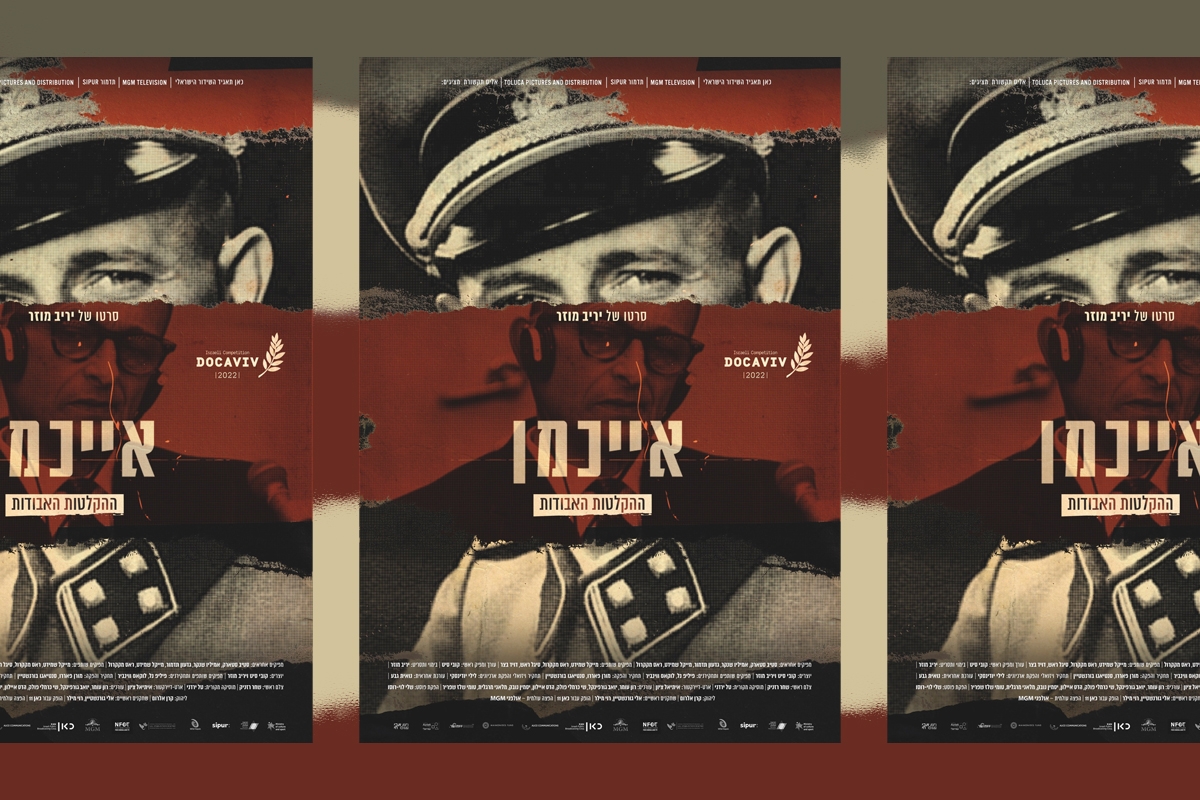At the 1961 trial of Adolf Eichmann, the man dubbed to be “the architect of the final solution,” Hannah Arendt, who reported for the New Yorker on the trial, described what she saw as “the banality of evil.”
Eichmann, a frail, middle-aged man, balding and bespectacled, was a mere bureaucrat — a man climbing the Nazi corporate latter, if you will, not a particularly nefarious evil mastermind.
But lengthy taped interviews with the Nazi official, recorded four years prior in a cushy office in Argentina, reveal that Arendt’s framing is not as accurate as we might have thought.
An Israeli documentary series that exposes the tapes for the first time is now available to stream on Amazon Prime, and it is truly a must-watch Holocaust documentary.
“The Devil’s Confession: The Lost Eichmann Tapes,” which originally aired on Israel’s KAN11 network, is the first Israeli documentary series to make it to the streaming platform, which last month premiered the second season of the fictional Nazi revenge show “Hunters,” whose finale takes inspiration from the Eichmann trial.
Directed by Yariv Mozer, “The Devil’s Confession” juxtaposes tales of the trials with over 60 tapes of audio recorded by Nazi journalist Willem Sassen in his South American home. In the tapes, Eichmann not only takes responsibility for his role in the Holocaust — but also takes true pride in what he sees as his greatest accomplishment in what he calls “the most beautiful time of his life.”
The existence of the tape was already known back in 1961, when excerpts of them were published by Sassen in Time Magazine. But Israeli attorney general Gideon Hausner, who was in charge of Eichmann’s prosecution, was unable to procure them — and a transcript of the tapes that Hausner procured illicitly was not admitted as evidence, for complex reasons that the filmmakers reveal in the the third episode of the series.
Mozer unearthed these tapes back in 2020, but they had been sitting, untouched, in a German national archive since 1991.
The documentary is, therefore, the first time the public has access to these confessions in Eichmann’s voice — the very same voice we then hear echoed in media recordings from Eichmann’s trial. The filmmakers also bring these interviews to life by getting actors to reenact both Sassen and Eichmann in a setting reminiscent of the scene of the interviews: a casual conversation between two peers in a dimly lit office, swirling glasses of wine, against the ambient backdrop of a lived-in house — the laugher of children, the buzzing of a fly.
When Sassen goes to swat the fly, we hear, “It’s a fly of a Jewish nature.” The offhand statement is absolutely chilling.
The most harrowing thing about this documentary is hearing Eichmann’s voice. His evil is banal after all, but not in the way Arendt meant it — the way in which he talks about his hate for Jews, his participation in their genocide, is horrifyingly casual, as if he were talking about his plans for dinner.
“The Devil’s Confession” paints a meticulously-crafted picture of Eichmann’s life, including the German expat community he belonged to in Argentina that openly still celebrated Nazism. To illuminate the tapes and the historical context of the trials — which took place during the heart of the Cold War, at a time before Holocaust survivors were revered — Mozer and Sitt rely on a group of academic experts (including Deborah Lipstadt), people involved in the trial and the daughters of both Sassen and Hausner.
In the tapes, Eichmann describes his antisemitic views in great detail; we then hear him tell the Israeli court that “I’m not an antisemite, I was a nationalist.” While on trial, Eichmann also insists that he didn’t see any killings and had no idea what was happening to the Jews he was helping transport.
But in the tapes, he keeps bringing up the more than 10 million Jews the Nazis intended to exterminate, and says he wishes he could have defeated the enemy.
Watching the trial with this knowledge at hand, Eichmann no longer looks like a little errand man who could have been just anyone. Instead, he’s a brazen liar, looking at a room filled with people whose extermination he would have relished — or, maybe worse, not thought twice about.
“Hungary really offered us the Jews like a fire sale,” Eichmann told Sassen of the 800,000-strong Jewish community of Hungary that almost made it through the war — before he helped lead so many of them to their deaths. It’s a statement that he later denied at the trial.
To put Jewish leaders he met at ease, Eichmann recounted to Sassen, he would say, “You are with the tsar of the Jews.” In the context of Eichmann’s many falsehoods, the viewer ultimately sees Hausner as just another Jew that Eichmann deceived — the last gasp of a legacy of lies to the Jewish people that led so many to their deaths.
Yet “The Devil’s Confession” is also a celebration of the survivors who — ultimately — brought Eichmann down. After Hausner was not allowed to use the tapes as evidence, he relied heavily on the testimony of survivors, who, at the time, were a maligned part of the Israeli population — with many believing that those who survived must have made a bargain with the devil.
Yet it was their stories, told through tears and emotional and physical turmoil, that led to Eichmann being convicted, and to his 1962 execution.
“There is no revenge, there is just consolation,” said one of the survivors who was at the trial, as he shared photos of his large Jewish family.








